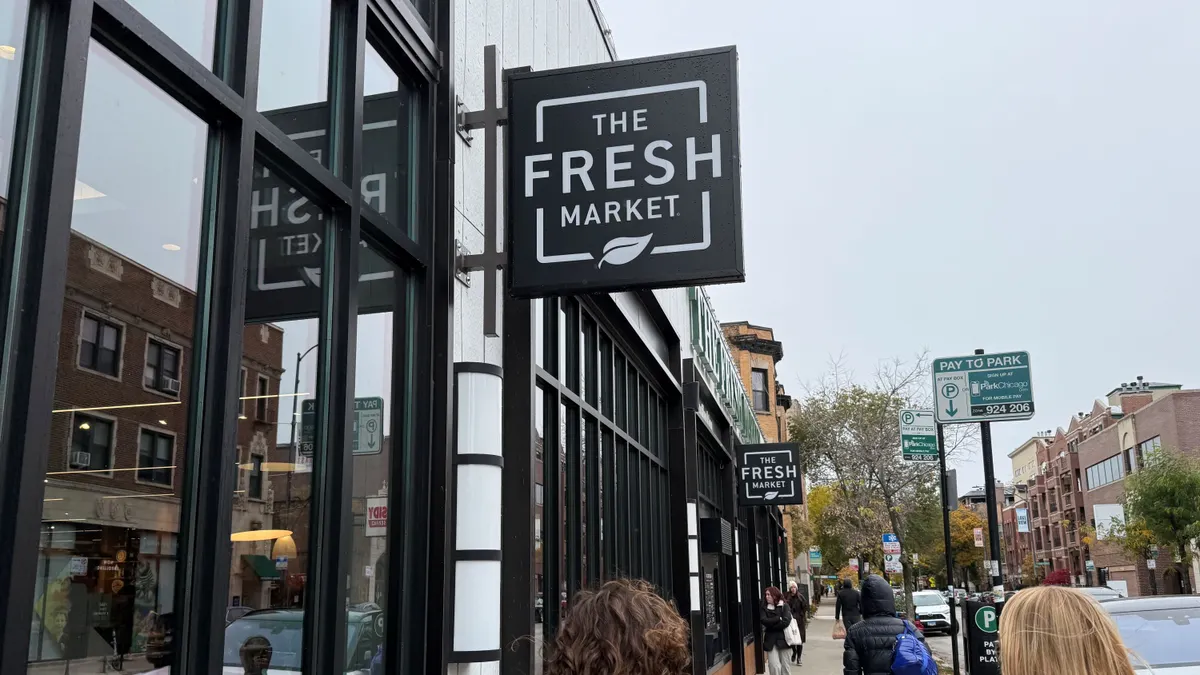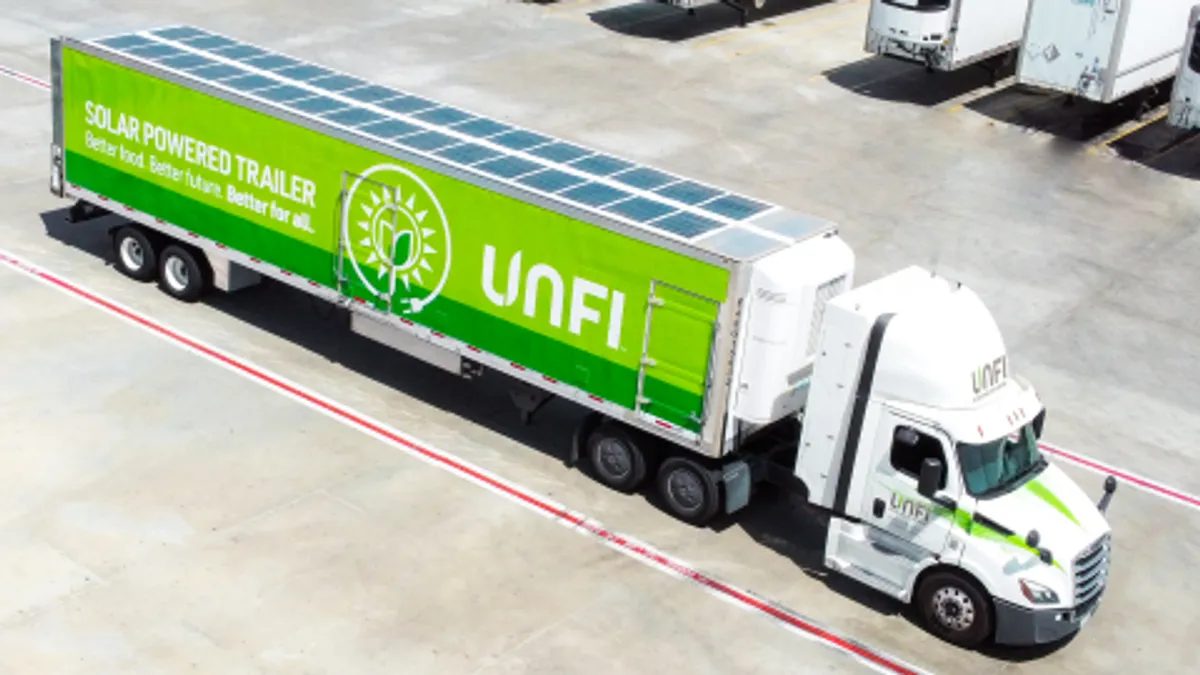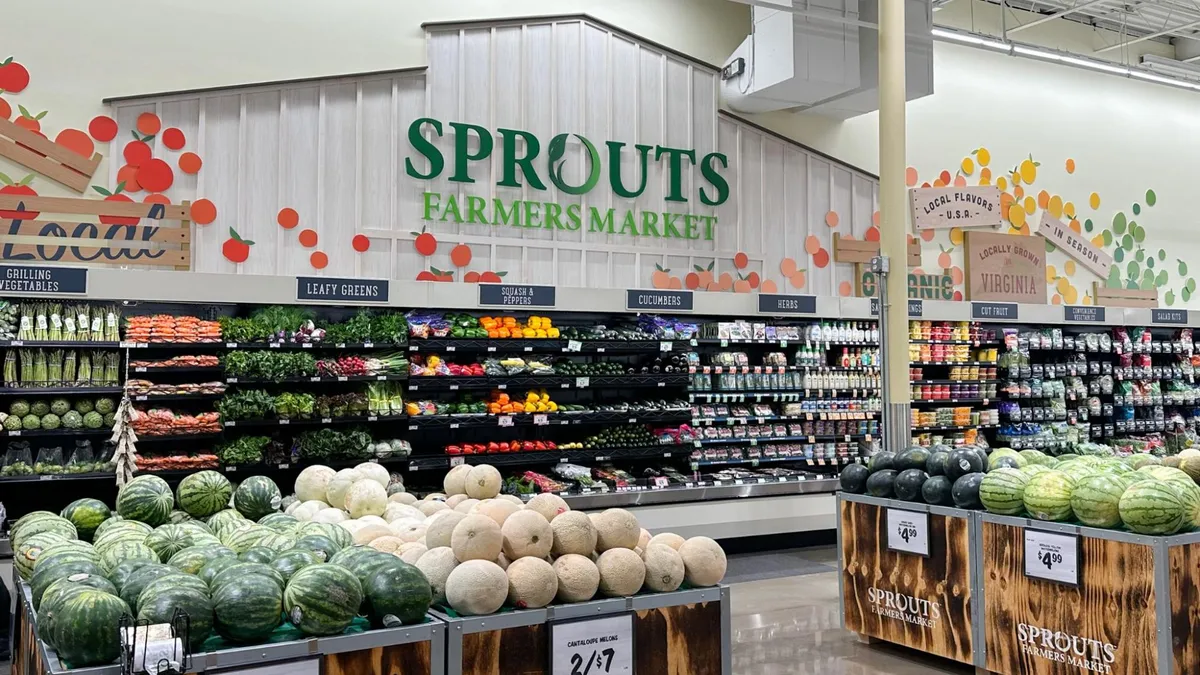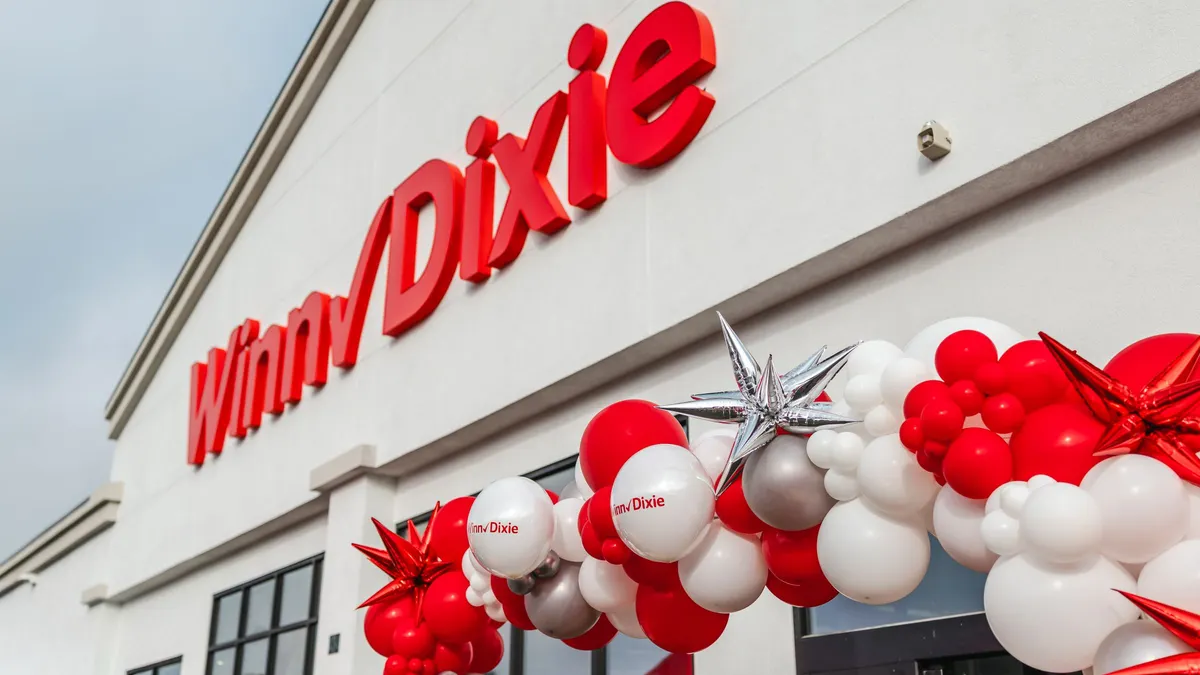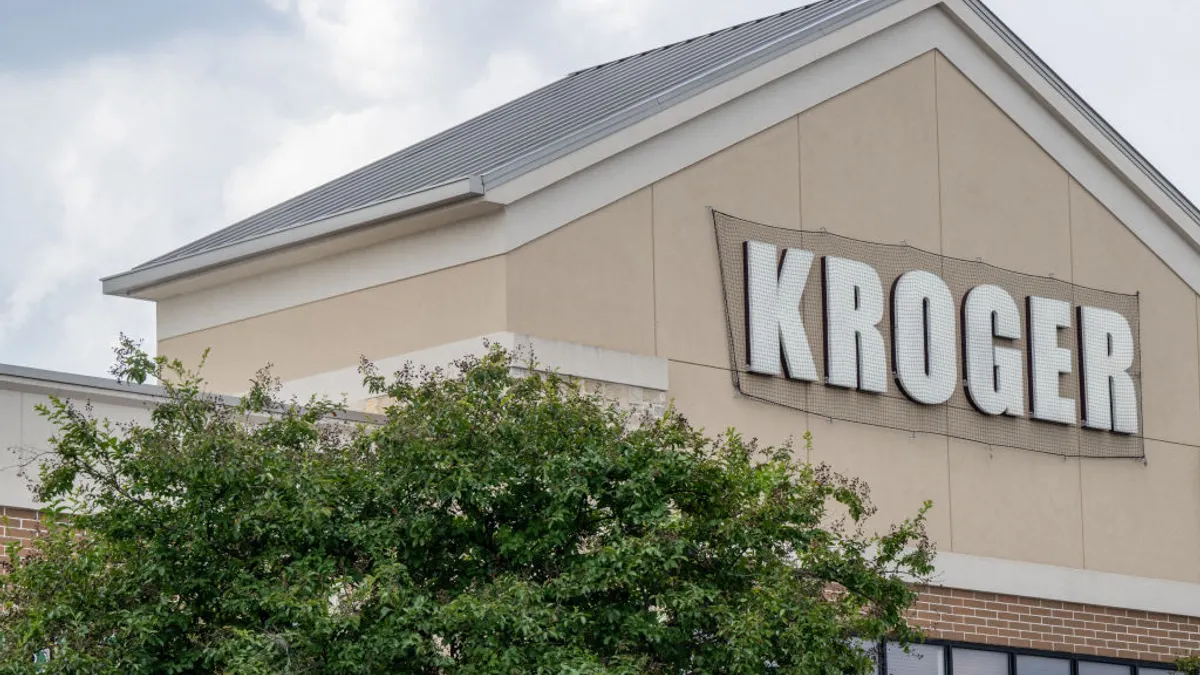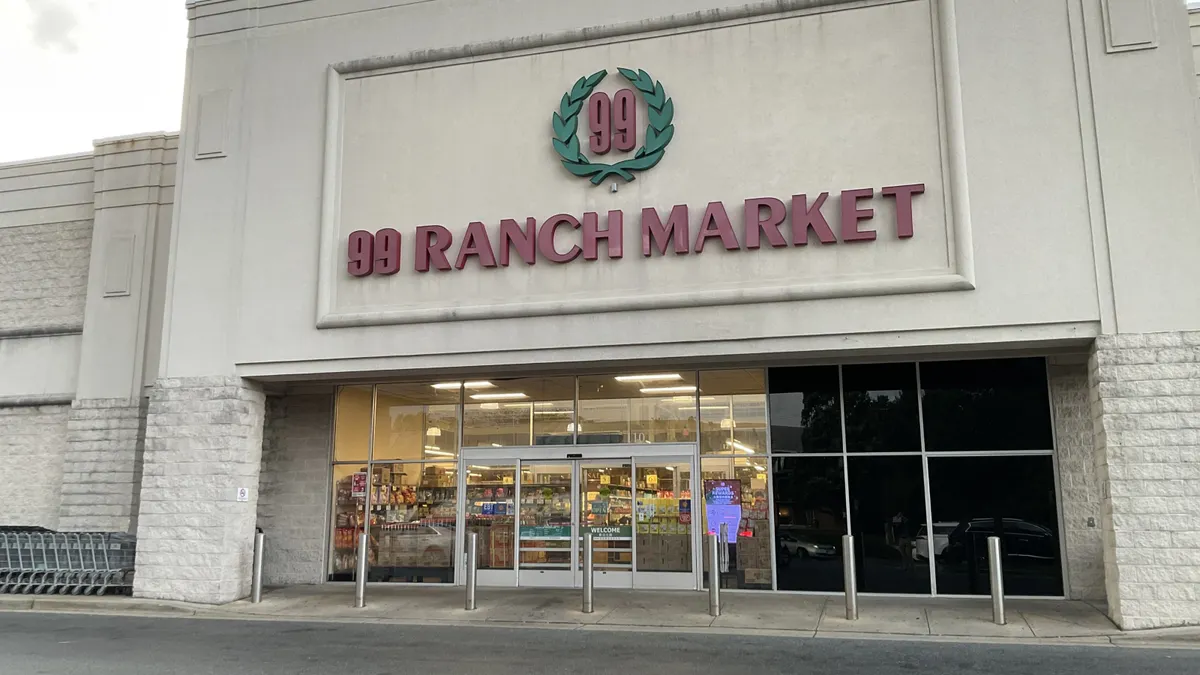Midwestern grocer Hy-Vee hasn’t let up at all since the COVID-19 outbreak began. From implementing one-way aisles to announcing full-service fueling at its convenience stores, the company has been at the bleeding edge of health and safety practices for customers and employees.
"They are the most proactive, thoughtful chain that’s out there," Phil Lempert, founder and editor of SuperMarketGuru.com, told Grocery Dive.
While the current situation is difficult, it has also presented some opportunities, CEO Randy Edeker told Grocery Dive in an interview. He’s learning day by day what’s working well and what needs refining as the company and its shoppers look forward to a "new normal."
'Zero regrets' on safety
Edeker, who said Hy-Vee employees are just as brave as any first responders, does not want to look back on this period with any regrets when it comes to the health and safety of his employees as well as customers.
Hy-Vee has implemented several new policies since the onset of the pandemic. Every check stand now has plexiglass barriers in front of each checker and behind them as well. Arrows in each store guide customers through one-way aisles, and elderly and vulnerable shoppers can take advantage of dedicated pickup and in-store hours every morning.
Hy-Vee has also given 10% appreciation bonuses to employees, ordered more than 120,000 masks for workers and made telehealth services, including mental health visits, more affordable for those workers.
"That’s been our biggest challenge, is just to make sure we do all the right things so there’s zero regrets after this is done," Edeker said.
Handling the e-commerce boom
According to Edeker, Hy-Vee’s e-commerce business, Aisles Online, has been "on fire" since the COVID-19 outbreak. While the company has been offering e-commerce for several years, it is seeing record volume and growth in the service, though Edeker declined to disclose any numbers.
"We hear every single day from customers that they never used Aisles Online before," he said.
Last month, Hy-Vee shut down four online fulfillment centers throughout the Midwest and moved fulfillment back into retail stores. The move raised questions about the company's ability to fill a high volume of orders, but Edeker said the stores have been able to handle the additional demand and also provide same-day pickup and a wider array of products.
"If we hadn’t done that, we would have never in a million years been able to handle the volume increase that we’ve seen through a single fulfillment center," Edeker said. "It just wouldn’t have happened."
With all the new customer demand, Edeker said in recent weeks the company has hired a few hundred new people at the distribution level to help with picking, and just under 1,000 additional store associates. In some areas, Hy-Vee has shifted more of its delivery fulfillment to third-party services like Shipt and DoorDash while focusing its employees on pickup service and other store needs.
"We hear every single day from customers that they never used Aisles Online before."

Randy Edeker
CEO, Hy-Vee
Staying in constant contact with workers
The unity among Hy-Vee employees has been "phenomenal" throughout the pandemic, Edeker said. Since it began, he has started having daily calls with store directors and releasing weekly videos to the entire company offering guidance and reassurance.
"I never did that before. I don’t know why," Edeker said. He plans to keep up the regular addresses even after the crisis subsides.
Hy-Vee has also engaged more with customers through digital efforts like Hy-Vee KidsFit, which offers daily exercise videos for kids and has seen traffic increase about 400% in recent weeks, according to Edeker.
The company also launched a hashtag, #HelpfulSmileStrong, to connect with shoppers on social media. Edeker said celebrities like Mark and Donnie Walhberg and Minnesota Vikings quarterback Kirk Cousins have participated with the company and its shoppers through the campaign.
"We’re working to take care of people and working to see what lasting change comes out of this," Edeker said. "And I think that there can be a lot of good that comes out of a bad situation."
Figuring out the 'new normal'
Though some opportunities have risen out of these difficult times, Edeker said Hy-Vee has also faced plenty of challenges.
On-premise foodservice, for example, has been a substantial part of Hy-Vee’s business model for decades — and it has been hit hard. The company removed all self-service food stations and had to move to curbside or delivery only from its Market Grille restaurants as well as for many of its made-to-order food options.
Depending on the length and severity of the pandemic, Edeker wonders if open-service stations like salad bars will ever come back.
"Those are things that we're contemplating now," he said.
The bakery department has suffered as well, Edeker said, and nonfood sections have slowed. "There’s been a mixed bag but overall, the business has been good. It’s very challenging," he said.
From restricted self-service in foodservice operations to a larger population of shoppers buying online, Edeker is trying to understand what a "new normal" may look like. The longer the pandemic continues, the more people will settle into new habits.
"The real question is what 'normal' is going to be and when 'normal' is going to happen," he said.
As grocers and consumers go through significant adjustments in response to the pandemic, the competitive landscape stands to shift, as well. Lempert, for one, anticipates regional grocers like Hy-Vee will come out ahead in a post-coronavirus world.
"I think this is going to be a time that the regionals really get stronger, that the communities that they’re in feel more of an affinity to them," he said.






